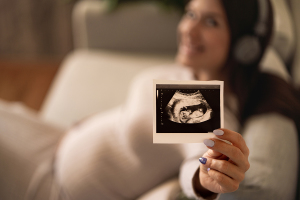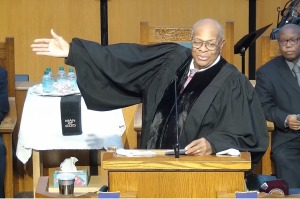Survey Offers In-Depth Look at Mainline Protestant Clergy
A majority of clergy from mainline Protestant denominations are much more likely to identify as liberal than conservative, according to a new in-depth survey.
Almost half (48 percent) of all surveyed clergy from the seven largest mainline denominations say they are liberal while 34 percent identify as conservative. Also, 56 percent of mainline clergy identify with or lean toward the Democratic Party, compared to 34 percent of those who affiliate with the Republican Party, results from the Mainline Protestant Clergy Voices Survey (CVS) show.
The survey, released Friday, was conducted by Public Religion Research and is reported as the largest survey of mainline clergy in seven years and the broadest ever in scope. The research group, which studies the intersection of religion, values, and public policy, surveyed senior clergy from the United Methodist Church, Evangelical Lutheran Church in America, American Baptist Churches USA, Presbyterian Church USA, Episcopal Church, United Church of Christ, and Christian Church (Disciples of Christ).
With the exception of United Methodist and American Baptist clergy, a majority of clergy in every denomination identify as liberal. Clergy from United Church of Christ (74 percent) and the Episcopal Church (66 percent) are most likely to say they are liberal.
Dr. Robert P. Jones, president of Public Religion Research, noted that mainline Protestants have been moving slowly away from the GOP since the early 1990s and trending Democratic in recent years.
Although the report highlights that mainline Protestants constitute sizeable portions of each party's vote and have become a potential swing constituency in many states, they are also "arguably the most neglected of the major religious groups in the American religious landscape."
"Mainline Protestants are probably the most under-examined major religious group in the United States," Jones said in a statement.
According to the report, mainline Protestants are often overlooked because of significant membership losses since the 1960s as well as their lack of prominence in the public spotlight.
But the report stresses that they make up 18 percent of all Americans and remain a critical part of the American religious landscape.
In addition to political issues, the research firm surveyed mainline clergy on theological and social issues.
According to survey results, two-thirds of mainline clergy disagree that "the Bible is the inerrant word of God, both in matters of faith and in historic, geographical, and other secular matters." Only 29 percent of mainline clergy agree with the statement.
A majority of clergy in every denomination except the American Baptist Churches USA do not believe in the inerrancy of the Bible, with clergy from the Episcopal Church least likely to believe so.
When it comes to prioritizing political and social issues, mainline clergy are most likely to say social welfare issues are the most important issues facing the country that the church should address. Only 10 percent say cultural issues such as abortion and same-sex marriage are the most important national issues.
Notably, only 13 percent of mainline clergy say moral or church problems, such as membership loss, are the most important problems for the church to address. American Baptist and United Methodist clergy, meanwhile, report that moral or church problems are most important.
When citing possible causes of membership losses, 46 percent of mainline clergy disagree that mainline churches are declining because they are becoming theologically liberal; 38 percent agree. American Baptist clergy (51 percent) are the most likely mainline group to credit the decline to theological liberalism in the church while only 19 percent of UCC clergy agree.
The report also breaks the stereotype that mainline Protestants are more focused on social justice and sociopolitical action than individual morality and evangelism.
According to the survey, 69 percent of mainline clergy believe that religious communities should concentrate on fostering both social justice and individual morality. Only 19 percent say religious communities should focus more on social justice; 12 percent say they should concentrate more on individual morality.
Also, 51 percent of clergy say both sociopolitical action and evangelism are equally important. Thirty-nine percent say evangelism is more important and 10 percent say sociopolitical action is more important in the mission of the church.
Other findings:
• 51 percent of all mainline clergy support the legality of abortion in all or most cases
• 65 percent support either same-sex marriage or civil unions
• 54 percent do not support the teaching of creationism alongside evolution in public school biology classes
• 43 percent disagree that evolution is the best explanation for the origins of life on earth
• 78 percent agree that the federal government should do more to solve social problems
• 67 percent agree that government should guarantee health insurance for all citizens, even if it means raising taxes
• 65 percent agree that the U.S. should maintain a strict separation of church and state
• 81 percent say they often publicly expressed their views about hunger and poverty in the last year
The Mainline Protestant Clergy Voices Survey builds upon earlier studies of mainline clergy in 1989 and 2001.The sample was generated by obtaining a random sample of 1,000 senior clergy from each of the seven largest mainline Protestant denominations. The survey was mailed to clergy between March 3 and September 15, 2008. The final data was based on 2,658 respondents.





























